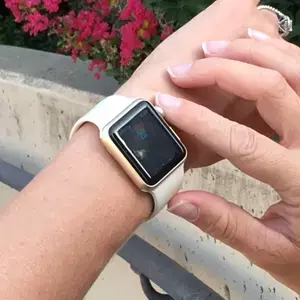- Home
- Medical news & Guidelines
- Anesthesiology
- Cardiology and CTVS
- Critical Care
- Dentistry
- Dermatology
- Diabetes and Endocrinology
- ENT
- Gastroenterology
- Medicine
- Nephrology
- Neurology
- Obstretics-Gynaecology
- Oncology
- Ophthalmology
- Orthopaedics
- Pediatrics-Neonatology
- Psychiatry
- Pulmonology
- Radiology
- Surgery
- Urology
- Laboratory Medicine
- Diet
- Nursing
- Paramedical
- Physiotherapy
- Health news
- Fact Check
- Bone Health Fact Check
- Brain Health Fact Check
- Cancer Related Fact Check
- Child Care Fact Check
- Dental and oral health fact check
- Diabetes and metabolic health fact check
- Diet and Nutrition Fact Check
- Eye and ENT Care Fact Check
- Fitness fact check
- Gut health fact check
- Heart health fact check
- Kidney health fact check
- Medical education fact check
- Men's health fact check
- Respiratory fact check
- Skin and hair care fact check
- Vaccine and Immunization fact check
- Women's health fact check
- AYUSH
- State News
- Andaman and Nicobar Islands
- Andhra Pradesh
- Arunachal Pradesh
- Assam
- Bihar
- Chandigarh
- Chattisgarh
- Dadra and Nagar Haveli
- Daman and Diu
- Delhi
- Goa
- Gujarat
- Haryana
- Himachal Pradesh
- Jammu & Kashmir
- Jharkhand
- Karnataka
- Kerala
- Ladakh
- Lakshadweep
- Madhya Pradesh
- Maharashtra
- Manipur
- Meghalaya
- Mizoram
- Nagaland
- Odisha
- Puducherry
- Punjab
- Rajasthan
- Sikkim
- Tamil Nadu
- Telangana
- Tripura
- Uttar Pradesh
- Uttrakhand
- West Bengal
- Medical Education
- Industry
Wearable device improves daily step counts in hemodialysis patients with ESKD

The results of a study published in the American Journal of Kidney Diseases demonstrates that a wearable activity tracker plus structured feedback intervention can lead to greater daily step counts in hemodialysis patients with ESKD
The team of Rakesh Malhotra investigated the feasibility and effectiveness of a 12-week intervention using a wearable activity tracker (Fitbit®) and structured feedback coaching versus a wearable activity tracker alone in improving physical activity levels in hemodialysis patients with end-stage kidney disease (ESKD). In this randomized controlled trial, 55 participants were recruited and randomly assigned to either the wearable activity tracker plus structured feedback intervention or the wearable activity tracker alone. The outcome measured was step count, and the main parameter of interest was the absolute change in daily step count, averaged per week, from baseline to completion of the 12-week intervention.
Of the 55 participants, 46 completed the 12-week intervention, with 23 participants in each arm. The study found that the structured feedback arm had a larger change in daily step count at 12 weeks relative to the wearable activity tracker alone arm. Specifically, the structured feedback intervention group had an increase in daily step count of 920 steps, while the wearable activity tracker alone group had an increase of only 281 steps. The between-group difference was a 639 step increase in favor of the structured feedback intervention group, which was statistically significant.
The study suggests that the intervention has the potential to improve physical activity levels in this population, which is important given the strong association between physical inactivity and morbidity and mortality in this patient group. Future studies are needed to determine the longer-term sustainability of the intervention and the potential health benefits for hemodialysis patients.
Source:
Malhotra, R., Rahimi, S., Agarwal, U., Katz, R., Kumar, U., Garimella, P. S., Gupta, V., Chopra, T., Kotanko, P., Ikizler, T. A., Larsen, B., Cadmus-Bertram, L., & Ix, J. H. (2023). The Impact of a Wearable Activity Tracker and Structured Feedback Program on Physical Activity in Hemodialysis Patients: The Step4Life Pilot Randomized Controlled Trial. In American Journal of Kidney Diseases. Elsevier BV. https://doi.org/10.1053/j.ajkd.2022.12.011
Neuroscience Masters graduate
Jacinthlyn Sylvia, a Neuroscience Master's graduate from Chennai has worked extensively in deciphering the neurobiology of cognition and motor control in aging. She also has spread-out exposure to Neurosurgery from her Bachelor’s. She is currently involved in active Neuro-Oncology research. She is an upcoming neuroscientist with a fiery passion for writing. Her news cover at Medical Dialogues feature recent discoveries and updates from the healthcare and biomedical research fields. She can be reached at editorial@medicaldialogues.in
Dr Kamal Kant Kohli-MBBS, DTCD- a chest specialist with more than 30 years of practice and a flair for writing clinical articles, Dr Kamal Kant Kohli joined Medical Dialogues as a Chief Editor of Medical News. Besides writing articles, as an editor, he proofreads and verifies all the medical content published on Medical Dialogues including those coming from journals, studies,medical conferences,guidelines etc. Email: drkohli@medicaldialogues.in. Contact no. 011-43720751


